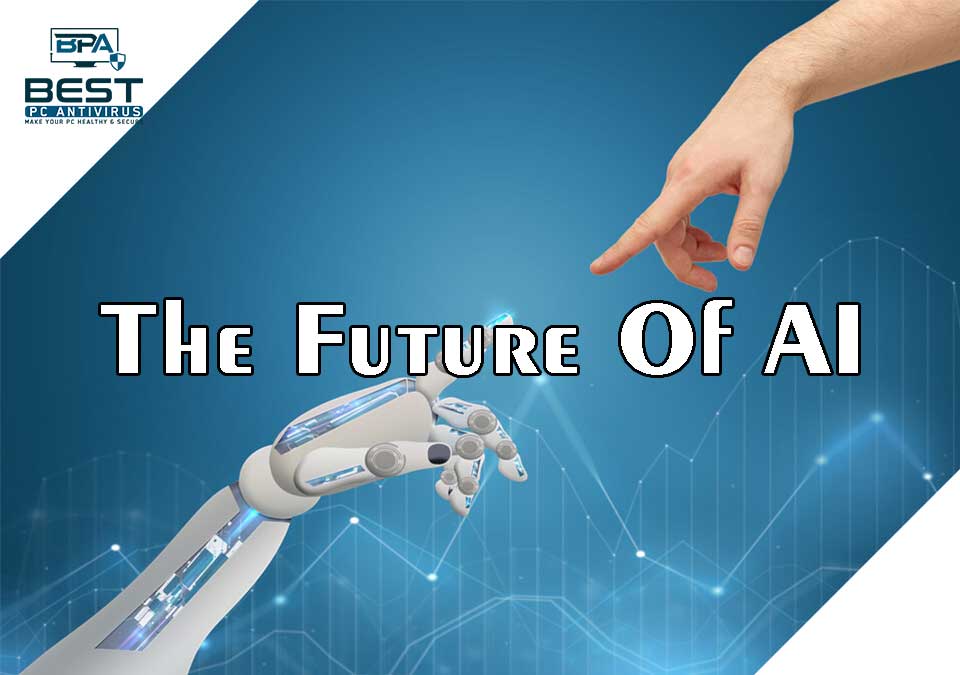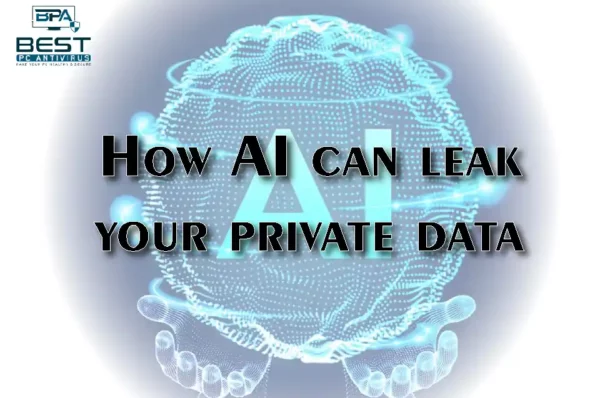AI, or artificial intelligence, seems to be on the tip of everyone’s lingo these days. While I’ve been apprehensive of this major trend in tech development for a while, I’ve noticed The Future Of AI appearing further and further as one of the most in-demand areas of moxie for job campaigners.
I’m sure that for numerous of us, the term “AI” conjures up sci-fi fantasies or sweat about robots taking over the world. The delineations of AI in the media have run the diapason, and while no one can prognosticate exactly how it’ll evolve in the future, the current trends and developments paint a much different picture of how I’ll come part of our lives.
In reality, AI is formerly at work each around us, impacting everything from our hunt results, to our online courting prospects, to the way we protect. Data shows that the use of AI in numerous sectors of business has grown by 270 over the last four times.
But what will AI mean for the future of work? As computers and technology have evolved, this has been one of the most burning questions. As with numerous technological developments throughout history, the advancement of artificial intelligence has created fears that mortal workers will come obsolete.
Before we do a deep dive into how I’ll impact the future of work, it’s important to start simple what’s AI? A straightforward description from Britannica states that artificial intelligence is “ the capability of a digital computer or computer-controlled robot to perform tasks generally associated with intelligent beings. ”
“AI” has come to a catchall term to describe any advancements in computing, systems and technology in which computer programs can perform tasks or break problems that bear the kind of reason we associate with mortal intelligence, indeed learning from one process.
This capability to learn is a crucial element of AI. Algorithms, like the dreaded Facebook algorithm that replaced all our musketeers with patronized content, are frequently associated with AI. But there’s a crucial distinction.
Given how artificial intelligence has been portrayed in the media, in particular in some of our favourite sci-fi pictures, it’s clear that the arrival of this technology has created fear that I’ll one day make mortal beings obsolete in the pool. After all, as technology has advanced, numerous tasks that were formerly executed by mortal hands have come automated. It’s only natural to sweat that the vault toward creating intelligent computers could herald the morning of the end of work as we know it.
But, I don’t suppose there’s any reason to be so fatalistic. A recent paper published by the MIT Task Force on the Work of the unborn entitled “ Artificial Intelligence And The Future of Work, ” looked nearly at developments in AI and their relation to the world of work. The paper paints a more auspicious picture.
Rather than promoting the fustiness of mortal labour, the paper predicts that I’ll continue to drive massive inventions that will fuel numerous being diligent and could have the eventuality to produce numerous new sectors for growth, eventually leading to the creation of further jobs.
While AI has made major strides toward replicating the efficacity of mortal intelligence in executing certain tasks, there are still major limitations. In particular, AI programs are generally only able of “ technical ” intelligence, meaning they can break only one problem, and execute only one task at a time. frequently, they can be rigid, and unfit to respond to any changes in input or perform any “ thinking ” outside of their specified programming.
Humans, still, retain “ generalized intelligence, ” with the kind of problem working, abstract thinking and critical judgement that will continue to be important in business. mortal judgement will be applicable, if not in every task, also clearly throughout every position across all sectors.
Numerous other factors could limit raw advancement in AI. AI frequently requires “ literacy ” which can involve massive quantities of data, calling into question the vacuity of the right kind of data, and pressing the need for categorization and issues of sequestration and security around similar data. There’s also the limitation of calculation and processing power. The cost of electricity alone to power one supercharged language model AI was estimated at$4.6 million.
Another important limitation of note is that data can itself carry bias, and be reflective of societal injuries or the implicit impulses of the contrivers who produce and input the data. However, this bias is likely to carry over to the results generated by the AI, If there’s bias in the data that’s inputted into an AI.
There has indeed been a bill introduced into Congress entitled the Algorithmic Responsibility Act with the thing of forcing the Federal Trade Commission to probe the use of any new AI technology for the eventuality to immortalize bias.
Grounded on these factors and numerous others, the MIT CCI paper argues that we’re a long way from reaching a point in which AI is similar to mortal intelligence, and could theoretically replace mortal workers entirely.
Handed there’s an investment in all situations, from education to the private sector and governmental associations — anywhere that focuses on training and upskilling workers AI has the implicit to eventually produce more jobs, not lower. The question should also come not “ humans or computers ” but “ humans and computers ” involved in complex systems that advance assiduity and substance.
This paper is a fascinating read for anyone hoping to dive deeper into AI and the numerous implicit directions in which it may lead.
AI Is getting standard in all businesses, not just in the world of tech
A couple of times lately, AI has come up in discussion with a customer or an associate, and I’m noticing a falseness in how people are allowing about it. There seems to be a sense for numerous that it’s a miracle that’s only likely to have a big impact in the tech world.
In case you hadn’t noticed, the tech world is the world these days. Don’t ever forget when economist Paul Krugman said in 1998 that “ By 2005 or so, it’ll come clear that the Internet’s impact on frugality has been no lesser than the fax machine’s. ” You surely don’t want to be behind the wind when it comes to AI.
90 leading businesses formerly have ongoing investments in AI technologies. further, then half of the businesses that have enforced some manner of AI-driven technology report passing lesser productivity.
AI is likely to have a strong impact on certain sectors in particular
Medical
The implicit benefits of exercising AI in the field of drugs are formerly being explored. The medical assiduity has a robust quantum of data, which can be employed to produce prophetic models related to healthcare. also, AI has shown to be more effective than croakers in certain individual surroundings.
Automotive
We’re formerly seeing how AI is impacting the world of transportation and motorcars with the arrival of independent vehicles and independent navigation. I’ll also have a major impact on manufacturing, including within the automotive sector.
Cybersecurity
Cybersecurity is front of mind for numerous business leaders, especially considering the shaft in cybersecurity breaches throughout 2020. Attacks rose 600 during the epidemic as hackers subsidized people working from home, on less secure technological systems and Wi-Fi networks. AI and machine literacy will be critical tools in relating and prognosticating pitfalls in cybersecurity. I’ll also be a pivotal asset for security in the world of finance, given that it can reuse large quantities of data to prognosticate and catch cases of fraud.
E-Commerce
I’ll play a vital part in commerce in the future, in every sector of the assiduity from stoner experience to marketing to fulfilment and distribution. We can anticipate that moving forward, we’ll continue to drive commerce, including through the use of converse-bots, paperback personalization, image-grounded targeting advertising, and storehouse and force robotization.
AI can have a big impact on the job hunt
Still, you might be in for a rude awakening, If you’re moving forward with the stopgap that a hiring director may give you the benefit of the mistrustfulness on a small misstep within the operation. AI formerly plays a major part in the hiring process, so much so that over 75 resumes are rejected by an automated aspirant shadowing system, or ATS before they indeed reach a mortal being.
Throughout history, babes have had to devote considerable time to poring over resumes to look for applicable campaigners. Data from LinkedIn shows that babe can spend up to 23 hours looking over resumes for one successful hire.
Decreasingly, still, renew surveying is being done by AI-powered programs. In 2018, 67 hiring directors stated that The Future Of AI was making their jobs easier.
Despite the adding frequency of robotization and algorithms in the hiring process, numerous have been critical of the use of certain types of AI by hiring directors, grounded on the charge that it can immortalize and ever produce further bias in hiring.
One particular example is illustrated by HireVue, a startup whose initial services included technology which aimed to use facial recognition software and psychology to determine the potential effectiveness of a candidate in a certain role. The Electronic Privacy Information Center filed a lawsuit with the Federal Trade Commission alleging that this software had the potential to perpetuate bias and prejudice. HireVue discontinued the use of facial recognition software in early 2021, and now uses audio analysis and natural language processing.
The use of certain types of AI in the hiring process will likely be controversial as new technology develops. However, if potential employers are using AI to process your application, there is no reason that you cannot be utilizing similar technology to your advantage.
- Job scan is an excellent resource that provides similar resume scanning to what would be used by a hiring manager. By comparing your resume to a job description, Jobscan will give you information on how to tweak your resume so that it is a good match for a certain position, with the goal of “beating” an applicant tracking system (ATS).
- Jobseeker is a browser add-on and another great AI-based tool for those on the job market. Based on a scan of your resume, as well as keywords and skills related to your desired jobs, Job seer will help match you with the job listings that best fit your experience. For each listing, you get a rating based on how well you are aligned with the particular posting, as well as recommendations of skills to add to better position your resume and experience.
- Re: Now, as a disclaimer, I would never encourage you to turn your resume writing over to a bot. But Rezi is an awesome AI-based resume builder that includes templates to help you design a resume that is sure to check the boxes when it comes to applicant tracking systems. This is a great jumping-off point to kickstart a new resume. Another great way to use this type of tool is to generate a new resume and compare it to your current resume to see how it stacks up, and identify some areas for improvement.
The Future Of AI is also a great place to focus your energy if you are looking to upskill in your career, or make your professional profile more competitive in the job market, especially when you consider that AI will have far-reaching impacts across many industries.
AI and machine learning are at the top of many lists of the most important skills in today’s job market. Jobs requesting AI or machine-learning skills are expected to increase by 71% in the next five years. If you’d like to expand your knowledge base in this arena, consider some of the great free online course offerings that focus on AI skills.
If you are tech-savvy, it would be wise to dive deep and learn as much as you can about interacting in the AI space. If your skills lie elsewhere, it is important to recognize that AI will have a big impact, and to the extent of your abilities, you should try to understand the fundamentals of how it functions in different sectors.
FAQ
How powerful is AI?
To answer this question, let us briefly look at the complex history of Artificial Intelligence, especially in the field of neural networks. The concept of AI and its limitless abilities were gauged almost a few decades ago. AI was expected to be the next big thing to provide solutions to existing problems.
With time, people realized that Artificial Intelligence wasn’t as simple as expected. And to perform complex activities would almost be impossible, especially with the existing technologies during that period.
Initially, AI wasn’t as successful as it was deemed to be due to the lack of data as well as the technological resources to withstand the capacity of performing complex permutations and combinations.
However, during our current era, we have concluded that Artificial Intelligence is the potential future to create a revolutionary world. AI can even solve certain complex tasks, which would probably take humans more time comparatively.
Will AI steal your jobs?
Artificial Intelligence is the fastest-growing field in the present day. According to fortune, the statistics say that the hiring’s for AI specialists have grown by 74% over the last 4 years. Artificial Intelligence is regarded as the “Hottest” job of the present generation.
The demand for skilled AI specialists is growing faster than ever before. Requirements and open positions for experts in the sub-fields of AI like machine learning, deep learning, computer vision, statistics, and natural language processing are surging each day.
The question that arises naturally is will AI become that powerful eventually that it can steal all our jobs?
This statement that AI will steal your jobs in the future can almost be considered a myth, in my opinion. It is a hypothetical scenario where Artificial Intelligence will replace all human activities and take over a majority of the tasks of the modern world because they are less prone to human error and perform the particular task more efficiently.
Similar things were stated during the times of the industrial revolution when machines were introduced. It did not steal job opportunities. Instead, it paved the way for more jobs for humans to control them. Humans are intellectual beings. Hence, AI will simplify the complexity of human work but won’t take away your jobs!
What are the pros of AI?
Since the hype generated for Artificial Intelligence in the modern era is humungous, it has a wide array of merits.
Apart from the previously discussed massive job opportunities created by AI, it also has other pros, such as the completion of looping or repetitive tasks that humans need to perform without the disadvantage of a human-prone error.
Artificial Intelligence, similar to a computer program, cannot tire and hence can work all day long on a particular task until the desired results are accomplished.
They can perform faster computations compared to human speed on a wide range of problems with precise results. They also have tons of real-life applications to make our daily lives simpler. The pros of Artificial Intelligence are self-explanatory and limitless.
Read More – The Importance of Data Management




